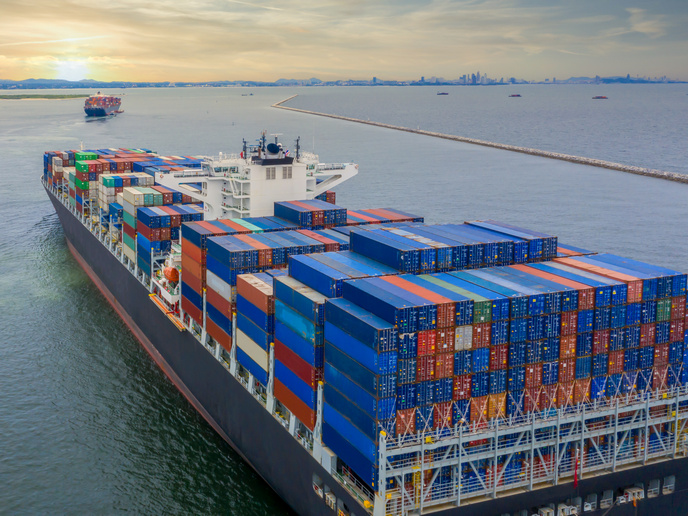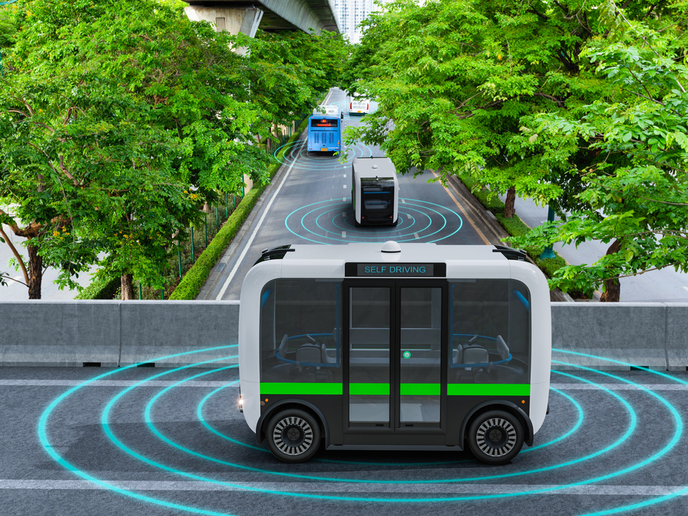Making Europe’s short sea shipping sustainable
Marime trade is vital for the prosperity of the EU. Ports currently process 74 % of the region’s imports and exports. Short sea shipping (SSS) is a major component of this trade, which includes shipping that happens over short distances and close to shore. Despite this importance, there are several key vulnerabilities and inefficiencies with the EU’s SSS system. Getting large container ships into berths at ports requires a significant amount of time, and many small ports lack the necessary infrastructure. The EU-funded MOSES project aimed to boost Europe’s SSS supply chain by introducing a series of innovative technological developments, including new feeder vessels, robotic container handling systems, and automated tugboats and docking systems. The project results led to policy recommendations aiming to further advance Europe’s SSS logistics and capabilities. “MOSES has taken the first steps towards automating the manoeuvring and docking process of large containerships in large container terminals,” says Nikolaos Ventikos, associate professor at the Laboratory for Maritime Transport, School of Naval Architecture and Marine Engineering (website in Greek) at the National Technical University of Athens. Based on simulations and a pilot demonstration, the project’s automated docking system is estimated to reduce the time required to manoeuvre and dock a large container ship by 25 %. The team expects a similar decline in air pollutants, while automation could mean tugboat and mooring services run on a 24/7 basis. “The autonomous tugboats can also contribute to improving operational safety by reducing the accidents caused by ineffective communication and coordination between the pilot and the tugboat captains, as well as those caused by fatigue and poor judgement errors,” explains Ventikos.
Bringing robotics and automation to SSS
The project designed, developed and tested several key pieces of innovative maritime systems to create the MOSES system, which works in harmony to increase SSS efficiency. When a large container ship approaches a port, automated tugboats head to the ship in a swarm formation and cooperate to bring it in safely. These tugboats are monitored remotely, and automatically adjust to shifting environmental conditions in the water. Upon arrival at the dock, an intelligent system verifies the safe and automated docking. To assist with the loading and offloading of cargo, an innovative feeder vessel equipped with a robotic crane automatically unloads containers onto the shore or directly onto trucks. The MOSES consortium included the ports of Mykonos in Greece and the Gandia and Sagunto ports in Spain, which supported the project in running three successful pilot tests in Denmark, the Netherlands and Sweden.
Promoting sustainable SSS services across the EU
MOSES developed several key policy recommendations that aim to support the development of SSS through multisectoral collaboration, infrastructure development, regulatory improvement and funding instruments. These include recommendations to: support business incubators and entrepreneurship hubs; harmonise SSS regulation across the EU; and simplify application processes to improve infrastructure development. MOSES’ innovations could connect large container terminals with small regional ports, with potential knock-on effects on urban infrastructure and transport by relieving local truck traffic – reducing air emissions and noise in the port vicinity. “The zero-emissions operation, the cost-effective transportation of relatively small quantities of containers, and the potential fully autonomous operation of the innovative feeder vessel can contribute to increasing the competitiveness of SSS,” Ventikos adds.
Keywords
MOSES, short sea shipping, maritime, trade, automated, tugboats, system, zero-emissions, operation, sustainable







